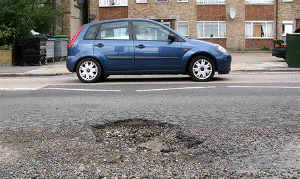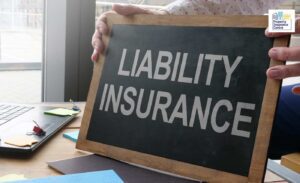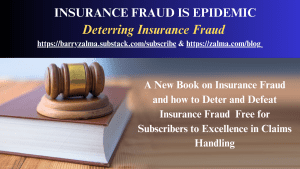Where can I find a location that has at-home over-the-counter COVID-19 tests?
Where can I find a location that has at-home over-the-counter COVID-19 tests?
Consumers can visit stores online or in-person. The Biden-Harris Administration is also strongly incentivizing health plans and insurers to set up a network of convenient options across the country like pharmacies or retailers, including online retailers, where people can get COVID-19 tests for free at the point of sale, rather than having to submit claims for reimbursement. Consumers can find out from their plan or insurer if it is providing direct coverage of over-the-counter COVID-19 tests through such a network of preferred pharmacies or retailers. Jan 12, 2022
What is the Families First Coronavirus Response Act (FFCRA)?
See full answer On March 18, 2020, President Trump signed into law the Families First Coronavirus Response Act (FFCRA), which provided additional flexibility for state unemployment insurance agencies and additional administrative funding to respond to the COVID-19 pandemic. The Coronavirus Aid, Relief, and Economic Security (CARES) Act was signed into law on March 27. It expands states’ ability to provide unemployment insurance for many workers impacted by the COVID-19 pandemic, including for workers who are not ordinarily eligible for unemployment benefits. For more information, please refer to the resources available below.
Can I take paid sick leave if child care is unavailable?
See full answer You may be eligible for both types of leave, but only for a total of twelve weeks of paid leave. You may take both paid sick leave and expanded family and medical leave to care for your child whose school or place of care is closed, or child care provider is unavailable, due to COVID-19 related reasons. The Emergency Paid Sick Leave Act provides for an initial two weeks of paid leave. This period thus covers the first ten workdays of expanded family and medical leave, which are otherwise unpaid under the Emergency and Family Medical Leave Expansion Act unless you elect to use existing vacation, personal, or medical or sick leave under your employer’s policy. After the first ten workdays have elapsed, you will receive 2/3 of your regular rate of pay for the hours you would have been scheduled to work in the subsequent ten weeks under the Emergency and Family Medical Leave Expansion Act.
What if an employee refuses to come to work for fear of infection?
Your policies, that have been clearly communicated, should address this. Educating your workforce is a critical part of your responsibility. Local and state regulations may address what you have to do and you should align with them.
Does the COVID-19 vaccine reduce your chances of getting COVID?
COVID 19-vaccines are effective and can lower your risk of getting and spreading the virus that causes COVID-19. COVID-19 vaccines also help prevent serious illness and death in children and adults even if they do get COVID-19.
Should you get the COVID-19 vaccine if you already had COVID-19 and recovered?
If I already had COVID-19 and recovered, do I still need to get a COVID-19 vaccine? You should get a COVID-19 vaccine even if you already had COVID-19. Getting a COVID-19 vaccine after you recover from COVID-19 infection provides added protection to your immune system.
How does the COVID-19 vaccine boost your immune system?
Vaccines work by stimulating your immune system to produce antibodies, exactly like it would if you were exposed to the disease. After getting vaccinated, you develop immunity to that disease, without having to get the disease first.
What’s the efficacy of the Pfizer COVID-19 vaccine after 90 days?
Among adults who received 2 doses of the Pfizer-BioNTech (BNT162b2) mRNA COVID-19 vaccine, the risk for SARS-CoV-2 infection increased gradually after 90 days, according to results of a study published in BMJ. Dec 16, 2021
Why do some people still get COVID-19 after being fully vaccinated?
Because vaccines are not 100% effective, as the number of people who are fully vaccinated goes up, the number of vaccine breakthrough infections will also increase. However, the risk of infection remains much higher for unvaccinated than vaccinated people.
Why don’t you get sick after the COVID-19 vaccine?
But you don’t actually get sick because your body is only exposed to a small portion of the virus and not the intact virus that can cause the disease. The antibodies against the spike protein remain in your body and are available and ready to protect you if you’re exposed to the SARS-CoV-2 virus. May 18, 2021
How old do you have to be to receive the COVID-19 vaccine?
CDC recommends everyone ages 5 years and older get a COVID-19 vaccine to help protect against COVID-19.
Do I qualify for an exception or can I apply for an exception to the COVID-19 vaccine requirement?
See full answer Categories of noncitizen, nonimmigrants that meet the criteria for an exception under the proclamation and CDC’s order include: Persons on diplomatic or official foreign government travel Children under 18 years of age Persons with documented medical contraindications to receiving a COVID-19 vaccine Participants in certain COVID-19 vaccine trials Persons issued a humanitarian or emergency exception Persons with valid visas [excluding B-1 (business) or B-2 (tourism) visas] who are citizens of a foreign country with limited COVID-19 vaccine availability. Members of the U.S. Armed Forces or their spouses or children (under 18 years of age). Sea crew members traveling pursuant to a C-1 and D nonimmigrant visa Persons whose entry would be in the national interest, as determined by the Secretary of State, Secretary of Transportation, or Secretary of Homeland Security (or their designees) Oct 25, 2021
Who is included in the first phase of the COVID-19 vaccine rollout?
Phase 1a includes healthcare personnel and long-term care facility residents. Phase 1b includes persons ≥75 years of age and frontline essential workers. Phase 1c includes persons 65-74 years of age, persons 16-64 years of age with high-risk medical conditions, and essential workers not recommended in Phase 1a or 1b.
How long does immunity last after the Pfizer COVID-19 vaccine?
Antibodies able to block the omicron coronavirus variant last four months after a third dose of Pfizer-BioNTech’s vaccine, according to a study published Jan. 22 by bioRxiv. Jan 25, 2022
How long does the protection from Pfizer and Moderna’s COVID-19 booster vaccine last?
The most recent research from the CDC suggests that protection from the Pfizer and Moderna COVID-19 vaccines starts to fade around 4 months after a booster dose. Mar 15, 2022



